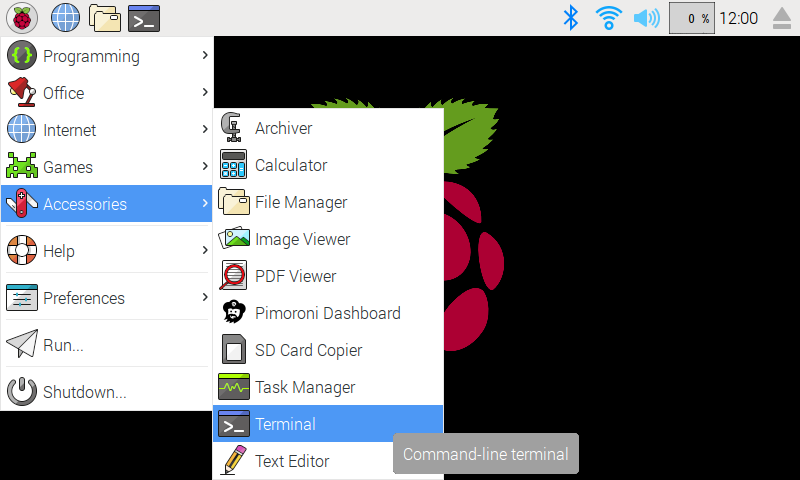If anyone is reading the file they will know to install `python3-smbus`, but if someone just do a quick `pip3 install bme680` then make sure to pull smbus from PyPI
BME680
https://shop.pimoroni.com/products/bme680
The state-of-the-art BME680 breakout lets you measure temperature, pressure, humidity, and indoor air quality.
Installing
Full install (recommended):
We've created an easy installation script that will install all pre-requisites and get your BME680 up and running with minimal efforts. To run it, fire up Terminal which you'll find in Menu -> Accessories -> Terminal on your Raspberry Pi desktop, as illustrated below:
In the new terminal window type the command exactly as it appears below (check for typos) and follow the on-screen instructions:
curl https://get.pimoroni.com/bme680 | bash
Manual install:
Library install for Python 3:
sudo pip3 install bme680
Library install for Python 2:
sudo pip2 install bme680
Development:
If you want to contribute, or like living on the edge of your seat by having the latest code, you should clone this repository, cd to the library directory, and run:
sudo python3 setup.py install
(or sudo python setup.py install whichever your primary Python environment may be)
In all cases you will have to enable the i2c bus.
Documentation & Support
- Guides and tutorials - https://learn.pimoroni.com/bme680-breakout
- Get help - http://forums.pimoroni.com/c/support


